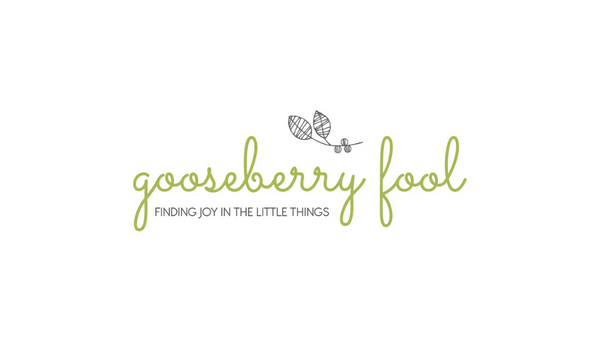How can we as businesses and consumers, ensure that we are acting responsibly and doing all that we can to protect our planet for future generations? If you are anything like me, it can be a struggle to find hope at times amidst mass production, over consumerism and the desire for things immediately in our ever-changing world. So I thought today, on World Fairtrade Day, I would share some stories of positivity. Stories where change is being affected, where human rights are being respected and people are being paid fairly. I hope that they may provide you with some inspiration, motivation and hope.

Nurturing change ~ Growing hope
In the small community of Halugudha, 35 farming families have been rewriting their story, thanks to the support of Chetna Organics and Fairtrade. With access to non-GMO seeds funded through Fairtrade premiums, they’ve moved away from costly, chemical-dependent methods, embracing the richness of organic farming. Their expenses have dropped, yields have risen, and their incomes have grown, thanks to natural fertilisers and traditional pest control methods.
For women like Sushila Gedam, this shift has been transformative. Not only has she become a leader within her community, but she now trains others, passing on the skills and confidence she’s gained.
“I never imagined I would become a trainer myself, teaching others how to farm sustainably and support their families,” Sushila says. “Now, I’m part of something bigger, a movement that respects the land and empowers our people.”
This is the true power of fair trade, a way forward that nurtures the land, strengthens communities, and inspires change for generations to come.

Threads of change ~ A story of fair trade and opportunity
Meet Nilesh Kamli, a 40-year-old factory worker from Umargam, Gujarat, who plays a crucial role in the creation of fair fashion. For the past 23 years, Nilesh has worked in the textile industry, a journey that began at just 17 when he left school to support his family. With his mother as the sole breadwinner and his older brother living with a disability, Nilesh shouldered this responsibility early, taking his first steps into the world of sewing.
Today, Nilesh works at the Fairtrade certified Purecotz Ecolifestyle textile factory, where over 500 sewing machines hum with the sound of progress, transforming organic, fair trade cotton into garments for brands like Melawear. Despite lacking formal training, Nilesh now manages the crucial sampling department, a responsibility his employer, Amit Narke, entrusted him with. “My boss is a good person,” Nilesh says. “He gave me this chance despite my limited education.”
The stability of his job has transformed Nilesh’s life. His family now lives in a bright orange stone house with a covered porch, a far cry from the uncertainty they once faced. The factory itself stands apart from others, with fair wages, timely payments, and continued support during the pandemic; a stark contrast to his previous experience.
Yet, while life has improved, Nilesh dreams of earning a living wage, one that covers not just the basics, but also allows for saving, education, and a secure future. This dream is becoming a reality as Purecotz, alongside partners like Melawear and Fairtrade, pushes for fairer wages. By 2026, all employees in the factory, including Nilesh, will earn a living wage, a significant step towards a brighter future for workers like him.
As Nilesh himself says, “I like my job very much, but to put something aside, the salary needs to be higher.”
His story is a powerful reminder that fair trade is not just about better fabrics, but better futures.

A brew for a better tomorrow ~ Sainsbury’s returns to Fairtrade tea
In a welcome return to its ethical roots, Sainsbury’s has reinstated the Fairtrade label on its classic teabags, a significant move that is set to boost UK Fairtrade tea sales by 50%. This decision marks a meaningful step in supporting the many small-scale tea farmers in regions like Kenya and India, where climate change and economic uncertainty have placed immense pressure on livelihoods.
For these farmers, Fairtrade is more than just a label, it’s a lifeline. It guarantees fair prices and provides funding for community projects, empowering farmers to invest in sustainable practices, improve their resilience to climate change, and support their families.
Sainsbury’s decision is a powerful signal of its renewed commitment to ethical sourcing and the wellbeing of its supply chains, ensuring that the tea in our cups has a positive impact on the people who grow it.
For shoppers, it’s a reminder that even the simplest choices, like the tea we drink each morning, can have a ripple effect on lives around the world.

A flourishing future ~The moss that’s changing lives in rural Peru
In a remote area of the Peruvian Andes, a remarkable initiative is transforming lives, and it all starts with moss. Sphagnum moss, to be precise, is not just a natural wonder but a powerful tool for economic empowerment.
Inka Moss, a registered B Corp, is helping women in high-altitude communities like Tambillo to create sustainable livelihoods by harvesting this unique plant. Historically, these communities relied on farming staples like potatoes, but climate change and volatile markets have made this increasingly challenging. Now, thanks to the support of Inka Moss, families can supplement their income by gathering moss, which is later sold for horticulture and other specialist uses around the world.
For women like Bertha Mendoza Ramos, this has been life-changing. “We can now cover all of my family’s needs,” she says. “In the past, this was much harder.” Working with Inka Moss means Mendoza Ramos can earn an income while still being home in time to share meals with her family, a vital aspect of rural life.
The impact is clear. Of the 15,000 producers Inka Moss has worked with so far, nearly two-thirds are women. This shift has sparked a quiet revolution in these communities, empowering women economically and socially. Bertha’s niece, Fiorella Anchiraico Montalvo, has used her earnings to fund her nursing studies, hoping to give back to her community with her new skills.
Meanwhile, Inka Moss’s approach is as environmentally sustainable as it is socially impactful. They work closely with the Peruvian government to ensure moss is harvested in line with strict forest management plans, protecting 5,000 hectares of fragile mountain ecosystems.
And the benefits don’t stop there. Thanks to their partnership with Shared Interest, moss collectors are paid immediately for their work, ensuring a stable income without the long waits typical in the global export market.
With these innovative steps, Inka Moss is proving that it’s possible to build a thriving, ethical business model that benefits both people and the planet.

Building a business with purpose
Being a responsible business is about benefiting the people and places around you whilst having a positive impact on your business, it means more than just balancing the books. It’s about creating a positive impact on the people and places that make your business possible. It means caring for those you have the pleasure of working with, nurturing respectful relationships with suppliers, and playing an active role in the community you serve. It’s also about understanding and reducing your impact on the natural world – ensuring that as you grow, you leave a lighter footprint behind.
It’s a commitment to doing better, not just for today, but for the generations to come.
Here are some of my suggestions to shop from businesses doing things better:
Loft & Daughter creates meaningful lifestyle products that celebrate slow and sustainable craftsmanship.
ZuluCow for sustainably-sourced, ethically made cowhide products.
Beaumont Organic designs and creates contemporary conscious clothing, responsibly, using luxury fabrics, for modern women.
Chapter Organics, aromatherapy essentials inspired by ancient traditions
Smalls Merino is the go-to specialist for Merino wool clothing for all ages. A female-founded luxury brand, offering 100% Merino Wool base layers & essentials for women & children.


